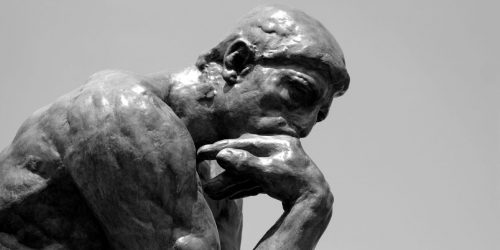This week’s pair of questions center on truth, the discovery of knowledge, and whether or not people should be wary of those who claim they have the absolute correct answer to any of life’s mysteries.
Question 1.
Think Twice
French author André Gide once posed:
“Believe those who are seeking the truth; doubt those who find it.”
Do you agree with this statement?
Have you ever believed you knew a significant truth, only to find out later you were wrong?
And are you more objective as a result of that experience?
*
Question 2.
End of Ages
Is it possible (or even probable) that ages from now, much of the science and philosophy we now take for truth will be revealed as false, and a newer, truer system of knowledge be put into place?
In other words, could many of the things we think we know be completely wrong?
Also…
Is it possible (or even probable) that the only period of time during which humanity will know the truth of everything (or close to everything) will be mere moments before the end of our existence?

* * *
Past Thought for Every Thursday entries are right here.
If you like these kinds of questions, try these on for size.
If you prefer something gentler, go here.
Until next week…






